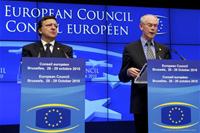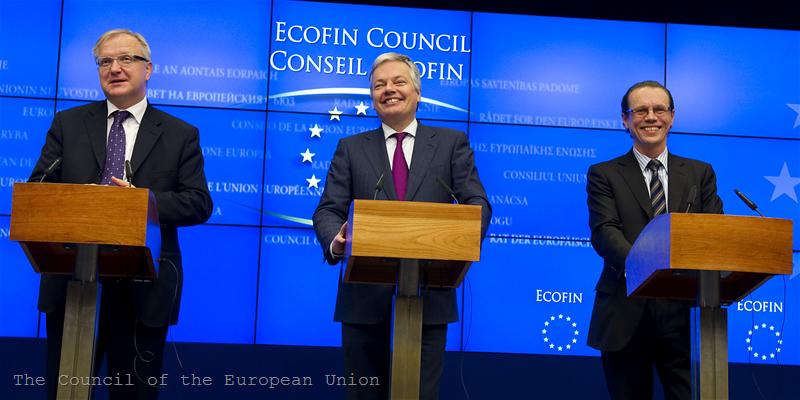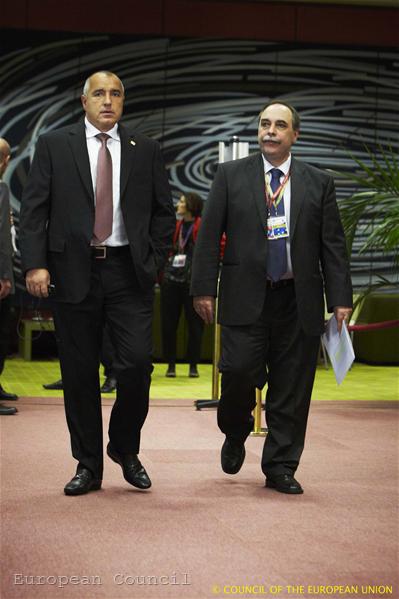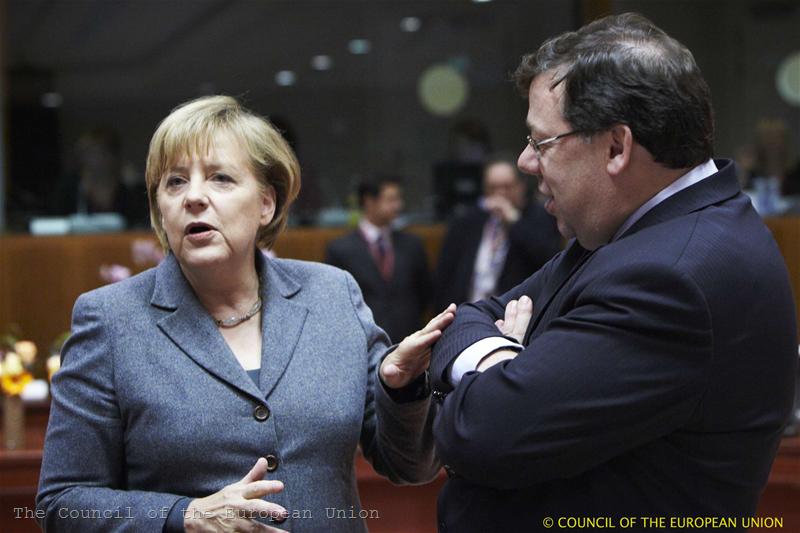There will be "limited" changes in the Lisbon Treaty
Ralitsa Kovacheva, October 29, 2010
 There will be changes in the Lisbon Treaty, although they will be „limited”. This became clear at a surprising midnight briefing of the President of the European Council Herman Van Rompuy and European Commission President Jose Manuel Barroso. The reason for the amendments is the need a permanent crisis mechanism for the euro area to be set up, which to be in compliance with the constitutional requirements of Member States.
There will be changes in the Lisbon Treaty, although they will be „limited”. This became clear at a surprising midnight briefing of the President of the European Council Herman Van Rompuy and European Commission President Jose Manuel Barroso. The reason for the amendments is the need a permanent crisis mechanism for the euro area to be set up, which to be in compliance with the constitutional requirements of Member States.
As you know, Germany insisted for changes, whose Constitutional Court will not approve an extension of the temporary crisis fund, which expires in 2013, nor the creation of a permanent mechanism in contradiction with the Treaty, which prohibits bailing out of a troubled Member State. "If we agreed a mechanism which did not meet all the constitutional guarantees, it would be a disaster”, Van Rompuy explained.
Member States agreed on the need for a “robust and credible permanent crisis mechanism to safeguard the financial stability of the euro area as a whole”. “Now the question is whether such a robust crisis mechanism requires a change of the Treaty. There are legal aspects and political considerations, both for individual Member States and for the Union as a whole”, Van Rompuy stated.
And the solution is only "limited" changes in the Treaty to be made to avoid the opening of the entire Treaty as well as to avoid a new institutional debate. In this regard, Heads of State or Government “invite the President of the European Council to undertake consultations with the members of the European Council on a limited treaty change required to that effect, not modifying article 125 TEU ("no bail-out" clause).”
For most Member States a reopening of the Lisbon Treaty would be a political nightmare, because the writing and the adoption of the Treaty took some 10 years. And the prospect of a referendum has been directly rejected by some as unacceptable. Most countries, however, have no objections to partial changes. The presidents of the Council and the Commission should submit proposals as to how exactly this permanent rescue fund will look and what legislative changes are needed. The deadline is the European Council in December.
As for the other request of Germany and France - for suspension of voting rights of eurozone countries in violation of the Stability Pact, “the President of the European Council intends to subsequently examine in consultation with the Member States the issue of the right to participate in decision making in EMU related procedures in case of a permanent threat to the stability of the eurozone as a whole." Earlier on Thursday Commission President Jose Manuel Barroso defined the idea for suspension of voting rights of eurozone countries as "unacceptable” and “unrealistic".
Otherwise, the leaders have approved the report of the Task Force, headed by Van Rompuy about the economic governance of the Union. On the issue of sanctions EU leaders have agreed that these should be earlier, progressive and applied easily, said the President of the Council. Namely - the leaders have supported the reversed majority rule, which means that the sanctions will take effect with a decision of the Commission, unless the Council would explicitly reject them by a qualified majority. Thus the political element in the Council decisions is being eliminated and the penalties become more automated.
“Only a few weeks ago, some Member States were very reluctant about the reversed majority. It is really a break-through.”
Regarding the request of 9 countries, including Bulgaria, the cost of pension  reforms not to be taken into account when calculating the budget deficit, it is yet to be examined “how the impact of pension reform can be accounted for in the implementation of the Stability Pact”.
reforms not to be taken into account when calculating the budget deficit, it is yet to be examined “how the impact of pension reform can be accounted for in the implementation of the Stability Pact”.
More details on all these issues are coming on euinside in the next few days.
 | © The Council of the European Union
| © The Council of the European Union | © European Council
| © European Council | © The Council of the European Union
| © The Council of the European Union